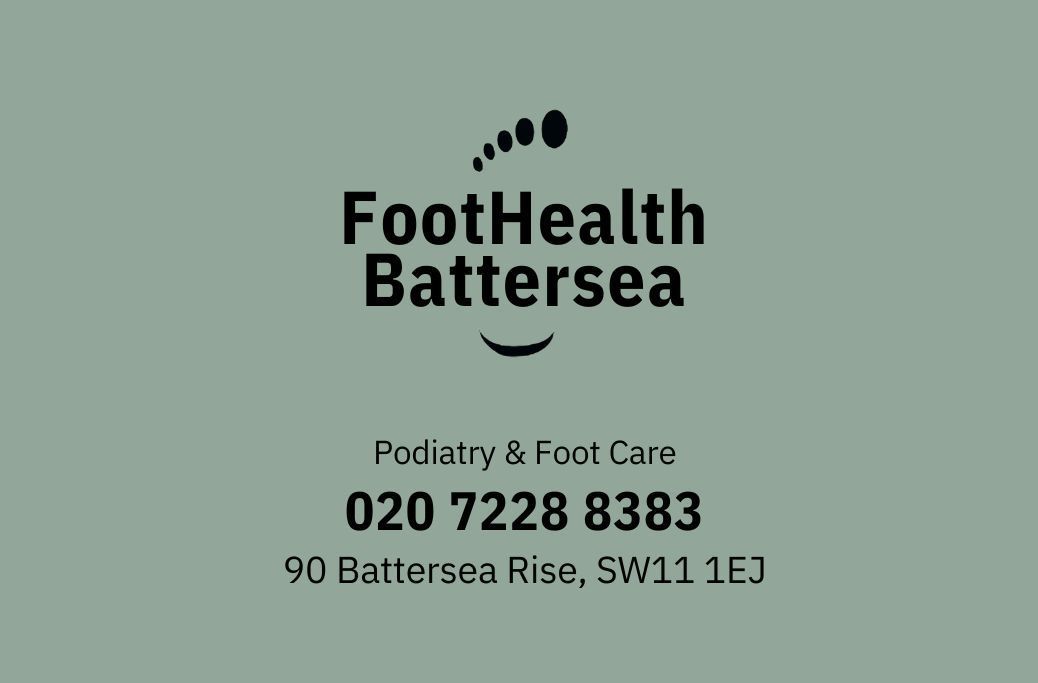020 7228 8383 info@foothealthbattersea.co.uk
Navigating Foot and Lower Limb Health During Pregnancy
Navigating Foot and Lower Limb Health in Pregnancy
When to See a Podiatrist?

Pregnancy is a journey filled with wonder and anticipation, but it also brings its share of physical changes and challenges. As your body transforms to nurture new life, you might find yourself experiencing unexpected discomforts, particularly in your feet and lower limbs.
Let’s take a closer look at how pregnancy impacts these areas and explore when it’s time to seek the help of a podiatrist.
A New Reality and How Pregnancy Impacts Your Feet and Legs
Imagine stepping into a new chapter of life, one where every day feels like a balancing act. As your belly grows and your body shifts, you might notice your feet and legs working harder than ever. Weight gain is a big factor—those extra pounds put additional strain on your feet, leading to discomfort and even conditions like plantar fasciitis, which causes heel pain. It’s like your feet are suddenly carrying more than their fair share of the load.
Hormonal changes also play a role. During pregnancy, your body releases a hormone called relaxin, which helps your pelvis become more flexible for childbirth. But this hormone doesn’t just target your pelvis—it affects ligaments throughout your body, including those in your feet. The result? Your feet might feel less stable and more prone to aches and pains.
Then there’s the shift in posture. As your baby bump grows, your centre of gravity changes. This shift can alter your gait and posture, putting extra pressure on your lower limbs and possibly leading to back pain or knee issues. It’s like your body is constantly recalibrating, and your feet and legs are on the front lines of this adjustment.
Swelling, or oedema, is another common issue.
As your body retains more fluid and circulation changes, you might notice your feet and ankles puffing up, especially by the end of the day. This swelling can make it hard to stand or walk comfortably, turning everyday activities into mini-marathons.
Unique Signs when You Might Need a Podiatrist
You’re not alone in this—many women experience foot and lower limb discomfort during pregnancy. But how do you know when it’s time to call in a specialist?
Here are some signs that might suggest it’s time to see a podiatrist
Persistent Pain: If your foot or leg pain lingers despite rest or home remedies, it’s worth seeking a professional opinion. Persistent pain can indicate an underlying issue that needs expert attention.
Swelling That Won’t Quit: While some swelling is normal, sudden or severe swelling can be a red flag. If your feet or ankles are swelling excessively or if the swelling is accompanied by other symptoms, a podiatrist can help determine if there’s a more serious issue at play.
Changes in Foot Structure: Have you noticed noticeable changes in the shape or size of your feet? For instance, a sudden increase in foot size or changes in your arches can indicate problems that a podiatrist can help address.
Numbness or Tingling: Feeling numbness, tingling, or weakness in your feet or legs? These symptoms could be related to nerve issues or other conditions, and a podiatrist can help diagnose and manage them.
Struggles with Walking or Balance: If you find it difficult to walk or maintain your balance, it’s time to get some professional advice. Changes in your gait or posture during pregnancy can affect your mobility, and a podiatrist can offer solutions to help you stay steady on your feet.
Finding the Right Podiatrist and What to Look For
Choosing a podiatrist is a personal decision, and finding the right one can make a big difference. Here’s what to consider:
Credentials and Experience: Make sure your podiatrist is board-certified and has experience treating pregnant patients. Expertise in pregnancy-related foot and lower limb issues is particularly valuable.
Specialisation: Some podiatrists focus on specific areas like sports medicine or diabetic foot care. Look for a podiatrist who has experience with the unique needs of pregnant women.
Patient Reviews: Check out reviews and testimonials from other patients. They can give you a sense of what to expect and help you find a podiatrist with a good reputation.
Communication Style: A good podiatrist will listen to your concerns, explain your condition clearly, and work with you to find the best treatment. Effective communication is key to feeling comfortable and confident in your care.
Convenience: Consider the location of the podiatrist’s office and their availability. Choosing someone close to home with flexible appointment times can make it easier to stick to your treatment plan.
Pregnancy is a time of profound and beautiful change, and taking care of your feet and lower limbs is an important part of maintaining overall well-being. If you’re experiencing persistent discomfort or notice troubling symptoms, don’t hesitate to consult a podiatrist.
With the right care and attention, you can navigate this transformative time with greater ease and comfort, keeping you on your feet and ready for the exciting journey ahead.
Read More from our Blog
FootHealth Battersea Blog Spot
Can FootHealth Battersea assist you?
Our customers share the best stories! Discover why Foothealth Battersea is the preferred Podiatry clinic in South West, London.












